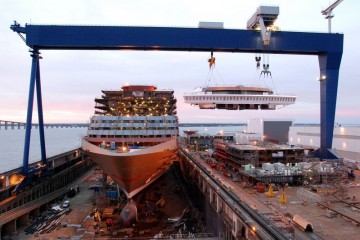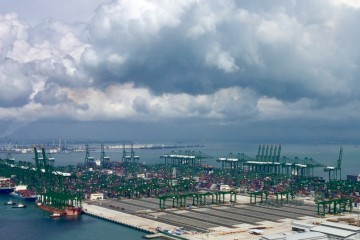Many ports these days behave like teenagers: they think they are adults, but they still live in their parents’ house and often act irresponsibly, while trying to be cool. This needs to stop: ports either need to grow up, or stop acting like kids.
More and more ports become “corporatised”. So the port is redefined as an “enterprise” and structured as a company. Good news for the port director: he can now call himself CEO, gets a driver, a higher salary and is no longer bothered by politicians who “know nothing” of his business. Less good news for the rest of us: most corporatised ports are actually not real companies, but while pretending that they are they often neglect the public interest.
Grow up
They are not real companies, because they do not pay company taxes, get subsidised or can transfer their risks to the public sector. Want to be a company? Fine, but please make sure to get enough money from your clients to finance your infrastructure and hinterland connections, and not use taxpayers money.
Companies are evaluated on their financial performance, but ports are more than – actually something quite different than – profit making machines. Good ports facilitate exports, generate value added, offer jobs and are respectful to environment and people living close to the port. Sure, a port better not make losses, but financials should not be the sole criterion. Curiously enough, all the “studies” on the success of corporatised ports proof this by showing their superior financial performance.
Choose your friends wisely
Corporatised ports have the tendency to listen very carefully to shipping companies, much less to other stakeholders, such as cargo owners or citizens. As a result, the shipping bubble has translated into a port bubble. Port overcapacity suits shipping companies well, but eats up the return on public investment, which is often not even on the balance sheet of most ports. Any attempt to coordinate between ports is dismissed as long as it is not “asked for by markets”, read: shipping companies. But of course no shipping company will complain of too much port capacity paid with taxpayers’ money.
Behave
Not all ports fall in this trap. The port of Gothenburg‘s prime focus is national exporters and local citizens – and it has been exemplary in satisfying their needs. And it is a port that has politicians in its board, so that public interests continue to be articulated. Compare that to most corporatised ports, in which the shareholder – state, city of both – has often lost all knowledge and insight needed to be a good counterweight.
Fair enough, there are also examples of ports where politicians have abused of their powers, but non-politicians are not completely exempt from corruption or abuse either.
The bottom-line: if we think that a public interest is served with ports, we should not pretend they are companies. If they just serve private interests, the logical consequence would be to privatise, rather than corporatise.



